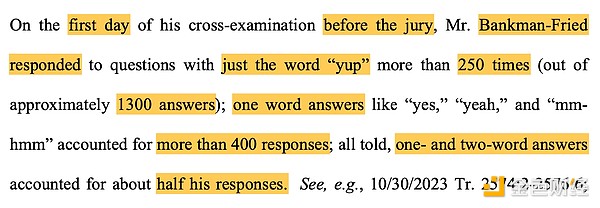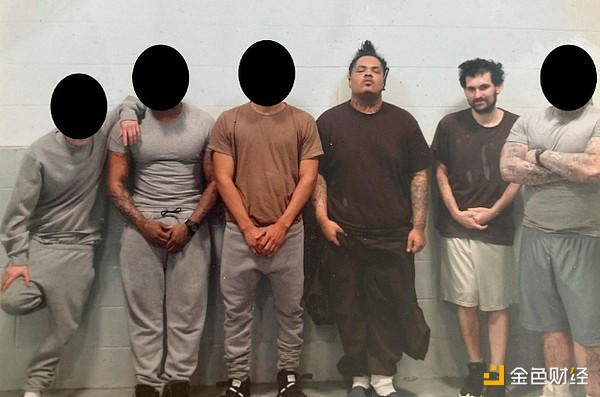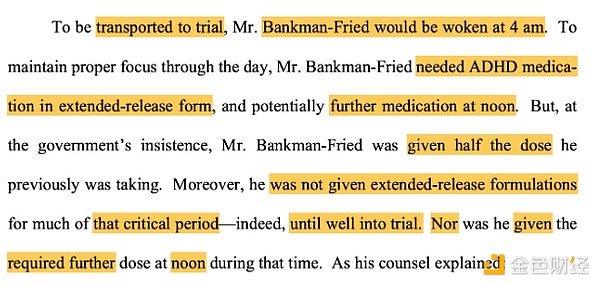Author: Jesse Coghlan, CoinTelegraph; Compiler: Wuzhu, Golden Finance
Sam Bankman-Fried’s criminal trial may have been marred by his neurodivergent disorder, leading to “lengthy answers” that frustrated the court, a group of doctors said in an amicus brief supporting his appeal.
The FTX co-founder’s diagnosis with autism spectrum disorder (ASD) and attention deficit hyperactivity disorder (ADHD) “posed significant challenges during the trial of this case,” eight doctors specializing in the neurodivergent field told the Second Circuit Court of Appeals in a September 20 amicus brief in support of Bankman-Fried.
They claim that because Bankman-Fried suffers from neurodivergent disorder, multiple rulings went against him, particularly a Manhattan District Court ruling that government prosecutors could cross-examine him without a jury before he sat before them.
That ruling “may have had far-reaching consequences” because “the judge repeatedly rebuked Mr. Bankman-Fried for his lengthy answers and attempts to clarify or rephrase questions” — characteristics of people with autism because they understand language in a literal way, doctors say.
They also claim that the judge’s punishment later led Bankman-Fried to change his answers before the jury.
“Mr. Bankman-Fried corrected significantly before the jury, and may have overcorrected,” they wrote.
“Unlike his answers when cross-examined outside the jury’s presence, Mr. Bankman-Fried’s answers before the jury were often brief or even terse — often a simple ‘yes.’”

The highlighted excerpt analysis states that when Bankman-Fried faced the jury on the first day, half of his answers consisted of just one or two words. Source: CourtListener
“Such brief responses could easily be misinterpreted as arrogance or indifference,” the brief states.
In March, when Bankman-Fried was sentenced to 25 years in prison for defrauding FTX clients of $11 billion, Judge Lewis Kaplan said Bankman-Fried “was evasive, quibbled and tried to get prosecutors to rephrase questions.”
Lack of documentation and medication a ‘serious impediment’
Bankman-Fried’s inability to obtain “an array of FTX documents” and appropriate ADHD medication was also a disadvantage, the doctors added.
“For someone with ASD, the lack of specific documentation can be a serious barrier,” they said, adding that Bankman-Fried was also “denied ADHD medication, which was necessary for him to maintain his focus” during the first three weeks of the trial.

Bankman-Fried (second from right) stands trial at the Metropolitan Detention Center in Brooklyn in December 2023. Source: Tiffany Fong
If autistic people look at the “specific documentation and precise wording of company policies, advisories, emails, etc.,” the doctors wrote, they “will be able to find concrete basis for their responses.”
Without that documentation, the doctors said, autistic people’s responses are “often fraught with uncertainty” and can appear “uncooperative or evasive.”
The brief states thatDuring the initial phase of the trial, when the government presented evidence, Bankman-Fried was also “deprived of his ability to focus” because he was not given the proper dose of ADHD medication—a point his attorneys raised during the trial.
Bankman-Fried needed to take extended-release medication in the morning and midday to help him focus throughout the day, but he took only half of his previous dose and did not take it “until very late in the trial,” the doctors said.

Excerpt from a doctor's brief account of Bankman-Fried's medication during the trial. Source: CourtListener
They added that "failure to provide effective doses of ADHD medications can significantly impair functioning" and that changing the dose could even "lead to withdrawal symptoms."
Criminal, bankruptcy cases crossover: Cases are being made
Meanwhile, a group of bankruptcy law professors filed an amicus brief the same day, supporting neither Bankman-Fried nor the government — raising concerns about crossover between the FTX bankruptcy case and the Bankman-Fried trial.
They argue that FTX's bankruptcy proceedings providing assistance to Bankman-Fried prosecutors "sets a dangerous precedent that encourages aggressive use of Chapter 11 proceedings to support parallel criminal prosecutions."
The group said the FTX bankruptcy estate's contribution to the Bankman-Fried criminal trial was "unusual compared to prior cases," citing the Enron and WorldCom cases in the early 2000s.

Key excerpts from law professor brief claiming FTX bankruptcy lawyers support prosecution of Bankman-Fried. Source: CourtListener
They added that the speed of the Bankman-Fried trial meant jurors were told: "Customers were repeatedly and inaccurately told that they would not recover any money from FTX."
"However, defendants were not given the opportunity to offer rebuttal evidence that the debtors were never found to be bankrupt or that FTX customers might in fact receive nearly 150% of their claims," they said.
FTX Asset Management said in May that it had enough money to repay creditors, plus "billions of dollars in damages" — but the value of those funds would be equivalent to the value of its assets at the time of bankruptcy in November 2022.
 WenJun
WenJun








